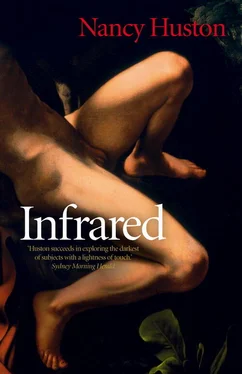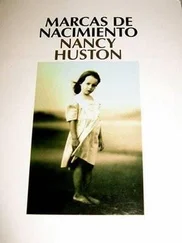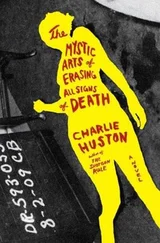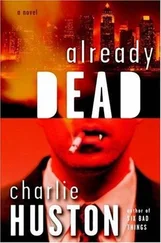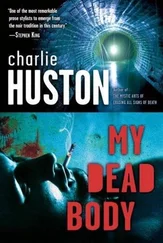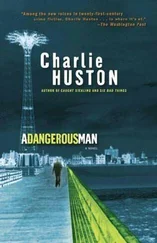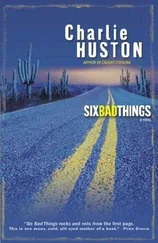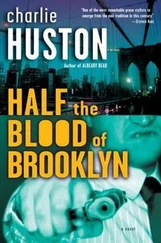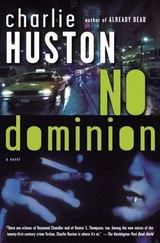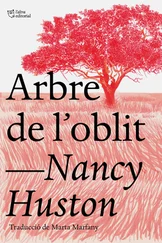Rena sees Ingrid hesitate, gather her courage, hesitate again, then decide to speak up. ‘I don’t want to sound critical, Dad,’ she says, on the verge of tears, ‘but how can we entertain when the dining-room table is stacked high with all your papers?’
Dante neither saw nor foresaw the circle of Hell to which my father seems condemned for all eternity.
‘I’m getting old,’ Simon says, looking steadily at Rena, ‘and my concentration is not what it used to be. I only have an hour a two a day of mental clarity — if I’m lucky! If I’ve had a good sleep, and if my medication hasn’t made me lethargic. So when, by miracle, I do get a bit of clarity, rather than squandering it on practical chores like tidying up my study, I prefer to use it for something, uh, let’s say, well…creative.’
It’s eleven-thirty. Soon Gaia will be home, and they won’t have budged. Oh, well. They can give up the idea of Volterra and settle for San Gimignano; what difference will that make?
In Ravenna, Dante sat down at his desk, took out a sheet of paper and a pen, allowed the images to well up in his mind, and transcribed them word by word.
Same thing when I enter my darkroom and close the door behind me: the space is orderly, the surfaces clean and bare. I prepare the baths, measuring one part substance to nine parts water, dust my negatives with a tiny paintbrush and slip them (shiny side up) into the enlarger, choose my filters and paper, peer through the grain magnifier at the arrangement of the tiny grains of silver halide, those molecules informed by light. When at last everything is ready, when the silence is ready, I turn off the lights and start exposing. Calm, concentrated, absent, I count off the seconds of exposure, work, rework, improve, stay there, expose, count the seconds, study the grain…
It’s all about framing. You’ve got to keep some things outside the frame. You’ve got to exclude. Only God can get away with embracing everything.
Impossible — such is his hell — to set a sheet of paper on my father’s desk. It vanished years ago, beneath a Himalaya of inextricably miscellaneous papers. On its surface, the urgent and the futile writhe together like the snakes of Laocoon; the future is blocked off by perpetual, guilt-inducing calls from the past. Every surface in his study literally overflows with ancient invitations, leaflets, newspaper clippings, magazines, advertisements, concert programmes, scribbled chemical formulae, snapshots, to say nothing of the report cards of children long grown and gone…The painful grimace of an African woman dying of AIDS overlaps with the benevolent smile of a Buddhist monk; the photocopy of an old Leonard Cohen poem finds itself face-to-face with the latest treacly letter from Simon’s sister Deborah (turned Zionist and pious in her old age); hip X-rays are interleaved with outdated issues of Brain magazine. Sufferings jostle and jive, memories vie for attention, reminders from the tax office scream their impatience…
Simon Greenblatt’s papers slide off the table, line up on the floor in military formation, march out of his study in Montreal, cross the Atlantic Ocean and invade Impruneta. A triumphant army of ancient papers overwhelms Gaia’s living room, wrenching Rena’s guts, causing tears to well up in her stepmother’s eyes, obstructing their bronchial tubes, clogging their arteries, blocking the circulation of blood and meaning, drowning out the music in their ears, cutting off their view of the Chianti hills, darkening the delightful Tuscan sun, and striking their perfect Sunday morning dead.
‘Daddy! Stop it!’ That’s Rena screaming at the top of her lungs. ‘Stop it! Stop it!’ She seems unable to find a more subtle way of putting it. ‘STOP IT!’
She flees.
Lombaggine
Head awhirl, she runs up to her bedroom.
The clay-footed ogre pursues me by not moving. His torpor strikes terror into my heart, breathes down my neck. Oh, Daddy! Daddy! Save me from the ogre who is you! If I don’t run as fast as I can, panting and sweating, he’ll catch up with me and throttle all my hopes — gloop, gloop. Engulfed by his misery, I’ll disappear forever. Look at Horemheb, he says. Look at Romulus. Look at the soul’s immortality. No, Daddy, no! — I need to run and run and keep on running — to escape your immobility!
Though it must be eighty degrees in her room beneath the roof, she’s shivering; her hands are freezing; and when she takes out her mobile to call Kerstin, she misdials three times in a row.
‘Dr Matheron’s office.’
‘Kerstin!’
‘Rena! How marvellous to hear your voice. Tell me! How’s the Tuscan trek?’
‘You first — how have you been? How’s your lumbago?’
Rena feels a bit responsible for that lumbago. Shortly after their fateful conversation in her darkroom, when she’d told Kerstin how gorgeous and sexy she still was, that stoical widow (whose erotic experience up until then had been limited to three or four impatient deflowerers, a fine husband lost to illness and an endless desert of abstinence), had shyly sat down at her computer.
Tell me, Subra says.
It wasn’t easy for her. It meant choosing a pseudonym, then learning to filter out weirdos, psychos, phallocrats…Still, the pickings have been excellent, overall. Between the ages of fifty-five and sixty, Kerstin has had a good dozen lovers and the things they’ve done together sound intriguing not to say extraordinary, even to my jaded ears. The men are almost all married, between forty and sixty. They confide in her after the love-making. They tell her their problems and listen to hers, make her laugh, shower her with compliments, tenderness and flowers. ‘You were right,’ Kerstin told me, after a few months of assiduous experimentation. ‘As long as you keep away from intellectuals, Frenchmen are remarkable lovers. They’ve got all sorts of qualities — curiosity, delicacy, boyishness, a sense of humour, a taste for vice…I can hardly believe my luck! I’m having a ball and I don’t plan to stop any time soon. God bless the internet!’ One day she confessed to a weakness for whippings and thrashings, probably dating back to the spankings her severe Protestant Swede of a father regularly inflicted on her plump pink bottom. She recently made the acquaintance of a young man in the Auvergne region who showed himself willing to punish her in all the ways she’d ever dreamed of, and many that had never occurred to her. ‘It’s pure theatre,’ Kerstin assured me. Though I don’t object to this sort of mise en scène on moral grounds (every true erotic encounter, be it with a…member of the other sex or of one’s own, with a broomstick or a mere fleeting image, opens our bodies onto the void that surrounds us and revives the violence of brute animal infantile life — a life that emerges from matter is destined to return to it), I admit I feared for my friend’s safety. So when she was struck down by a lumbago attack, following a strange excursion to the Auvergne last summer for a rendez-vous with the whipping man, I interpreted it as a wise warning from her body.
‘Better. A little better, these past few days.’
‘What does “a little better” mean?’
‘Well, I’m not about to go schlepping through the Afghan mountains with a sixty-pound back pack, but I do manage to get out of bed now and then. So I’m making progress. How about you? Oh… my darling Rena…are you crying?’
Absurdly, Rena nods.
‘So you’re having a rough time? As rough as you feared?’
She nods again, squeaking out a yes between sobs.
‘Dear heart. Come on, now, take a few deep breaths the way I taught you…’
‘Thanks, Kerstin.’
Читать дальше
